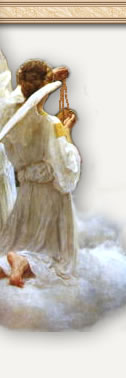




 |
|

|
|
|||||||||||
|
|
|
|
||||||||||||
 |
|
|
||||||||||||
 |
|
 |
|
|||||||||||
|
|
||||||||||||||
 |
 |
|
|
|
|
Psychiatry & Faith by Bruce W. Walters, M.D. - Fall 2001 Question: We discovered that our son, in his mid-teens, had been taking indecent liberties with a much younger female relative over an extended period of time. He was outwardly such a good boy, serving at the altar in Tridentine Mass, and was gifted in athletics and well liked by others. How could this be? How can we help him? How the enemy of our souls must rejoice over the defeat of the good! We may suppose there is more rejoicing in hell over one potential saint who sins grievously than over ninety-nine habitual sinners who seldom if ever consider repenting (cf. Luke 15:7). Youthful sexual experimentation (like sin in general) is very common, and most of it is never publicly reported. Modern psychiatry presumes that what is common is "normal" and therefore should usually be accepted, except non-solitary sexual behaviors involving children below the local "age of consent." "Sexual abuse" is defined by the inappropriate relative ages and/or stations of the participants, rather than by a conviction that the behaviors involved are unacceptable under any circumstances (other than the married state, for some behaviors). Psychological damage probably correlates mainly with coercion or force, and may actually be negligible when the age and status differentials are not significant and when participation is voluntary. Legal consequences are highly variable, and are seldom truly constructive. The fundamental problem is spiritual, and is therefore not well understood by psychology. What is "normal" behaviorally (essentially, "average" or, more precisely, falling within the broad mid-range on a bell-shaped curve of behavior patterns) is likely to cause one to end up in hell (Matthew 7:14). The struggle for chastity, particularly in our secularized culture, means aiming for the extreme end of the bell-shaped curve: seeking to be "ab-normal." In the modern world, adultery is practically a recreation, and the very concepts of impurity, fornication, and sodomy are thought to be medieval impediments to liberated sexual self-fulfillment. The focus in psychotherapy is likely to be upon learning to adhere to local age-of-consent laws, with the unspoken but very real message that "everyone does it; just be sure it's legal." The law of God will be given no more respect in typical psychotherapy for a sex offender than it will in a court ruling about abortion rights. On the good side, if your son is a minor, his legal record concerning this matter may be expunged when he reaches legal adulthood, so that he need not be "marked" all his life for a youthful indiscretion of which he may well truly repent. Prayer is perhaps most important, since the devil is enraged when hell loses a foothold. A review of the lives of great saints who had once been great sinners might be helpful as well: St. Mary Magdalene and St. Augustine of Hippo come to mind. We all know that chastity, including purity of heart, is difficult in the best of circumstances; and all the more so in the decadent anti-Christian culture of the twenty-first century. Therefore, a good orthodox spiritual director for your son will be of the utmost importance, though it may take real effort (i.e., pray for a miracle) to locate one. Your son must be convicted of sin in his own heart in order to be able to repent of it fully and to do appropriate penance, which will be the true source of healing for him. He needs help to adopt a traditional Catholic worldview, such as was available to young men in Fr. Lasance's guide (see below). Frequent recourse to the sacraments, and separation from his victim(s), will also help your son. Finally, he should be encouraged to learn about, and to grow in, devotion to the Immaculate Heart of Mary, so that she may obtain for him the grace of growth in purity – which is the only fundamental resolution to this problem. Question: Home schooling helps to protect our children from the assaults on purity inherent in modern "sex education." In the past, popular guides such as those by Fr. F.X. Lasance assisted parents in the spiritual preparation of their children. What insights can modern psychiatry offer that might add to, or modify, the traditional Catholic instruction provided in such guidebooks?1 Modern secular psychiatry has scoffed at traditional claims that a habit of impurity causes certain psychiatric and even physical ailments. It views a "sexual outlet" as normal, and an attempt to extinguish ("repress") sexual activity outside of marriage as pathological. Most modern sex-ed programs, for example, suggest that private acts of impurity are normal and even healthy; and that teaching they are wrong will do damage to a child's psyche by causing "inappropriate" guilt for "normal" behavior. This is one area in which modern psychiatry is diametrically opposed to the Catholic faith. Impurity may not cause literal imbecility or disease (as was taught in the past), but spiritually it may sear the conscience and lead to a form of spiritual imbecility Ð a truncated ability to rejoice in the beauty of holiness. "Catholic" sex-ed programs try to draw upon traditional Catholic moral distinctions. A physician performing a physical examination might experience unwanted impure thoughts, but need not consider such work an occasion of sin because it is a necessary duty motivated by charity. And in just the same way, goes the theory, formal classroom education into the clinical aspects of sexual functioning is necessary for good health maintenance, and therefore whatever impure thoughts arise as a result are not occasions of sin because the knowledge is necessary. The argument is that since children will not really receive proper instruction at home, it should be given at school. One can imagine classes segregated by sex, and taught by a holy priest or nun (a living example of true chastity), that might have approached this ideal in bygone days. I am not aware of current sex-ed classes being conducted according to such a model, however. The child has an inherent, God-given sense of modesty that resists public discussion of these matters; sex-ed classes seek to break down this inhibition, as if it were a bad thing, when in fact such modesty is a gift of God intended to help preserve chastity and purity. Private teaching about these matters, between parent and child, helps to reinforce the value of this good and natural inhibition. When knowledge of sexual matters is imparted in privacy, between parent and child, in the atmosphere of a godly home, it respects this modesty; when sex education is imparted in a classroom of peers, especially a class including both sexes, it is likely to be unduly stimulating and to cause the child to feel that his God-given sense of modesty is somehow pathological. Such assaults upon innocence (which is not to be equated with ignorance) are perhaps the worst aspect of classroom sex-ed. Science must be informed by the Catholic faith if it is to ask the right questions and pursue real truth. Science has revealed to modern man the magnificent complexity of the reproductive process, and the honest soul apprehends this knowledge with wonder and awe. Reproductive biology taught in the home imparts this wondrous knowledge without an assault upon modesty. But to decide how to use the available biological information requires a knowledge of truths not accessible to science, but only to faith. When the question is no longer how the body functions, but what behavior is proper under what circumstances, modern science offers little other than statistical rationalizations for popular sins. Our Lord implied that it is "normal" to be lost, and exceptional to be saved. Therefore, what science declares to be "normal" may not be relevant – indeed might be misleading – to those seeking to gain heaven. The usual arguments for sex-ed are pregnancy prevention via contraception, prevention of venereal disease, and the promotion of tolerance for deviant "lifestyles." Chastity renders these issues moot. A prevailing Catholic culture that encourages chastity is of course the only real solution, and we should harness our patriotic zeal to pray for just such a miracle. 1 Father F. X. Lasance, The Young Man's Guide (1910) and The Catholic Girl's Guide (1934) are available from Catholic Treasures, 800-257-4893 or www.catholictreasures.com.
|
|



♦ About The Mass ♦ Resources ♦ How To Help ♦ Contact Us ♦